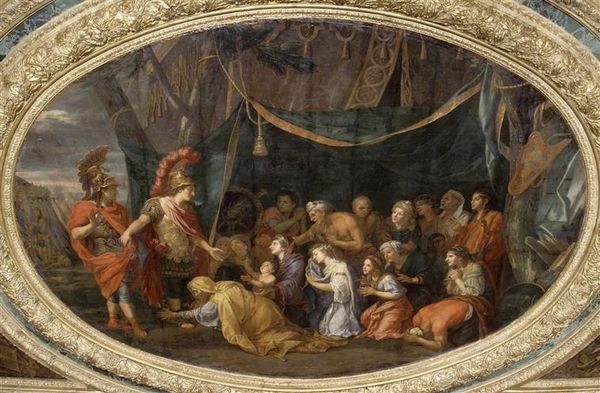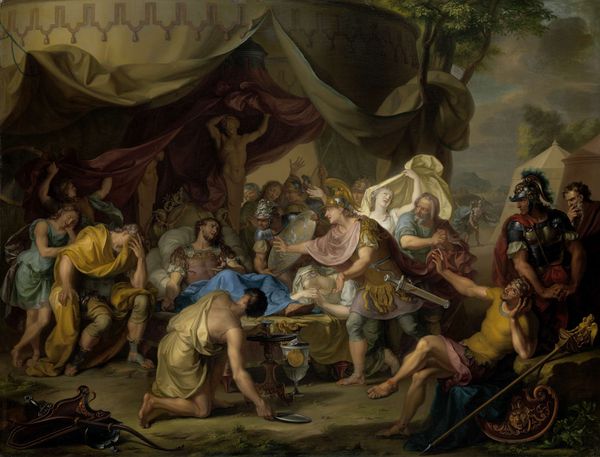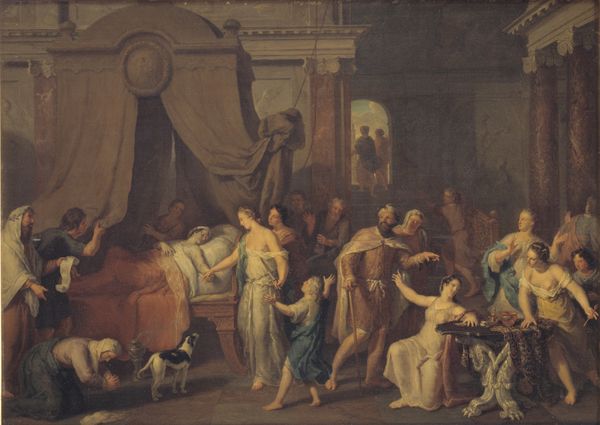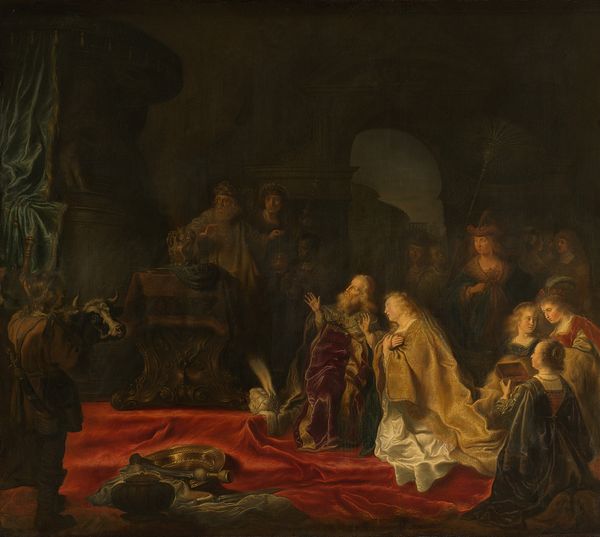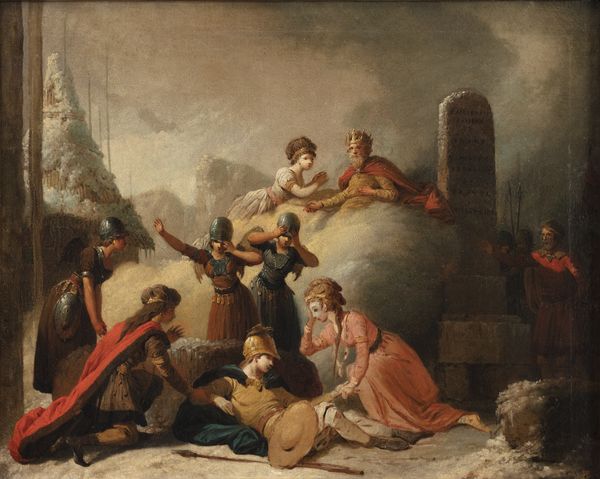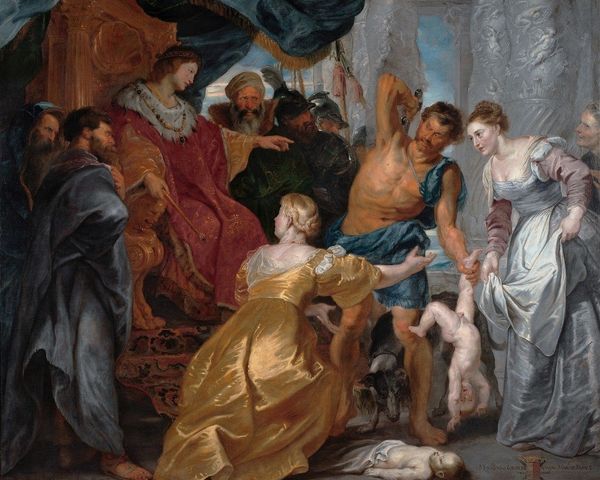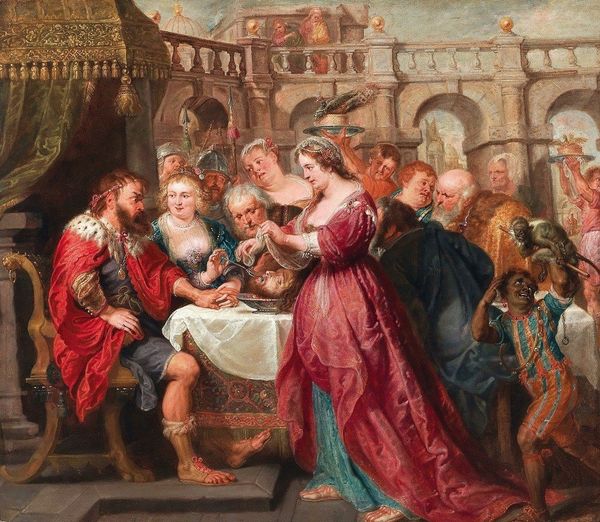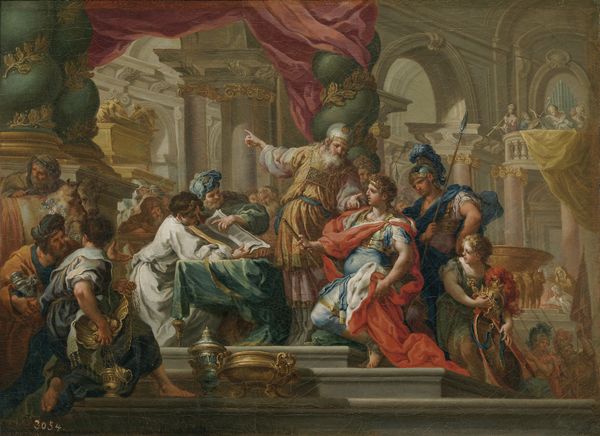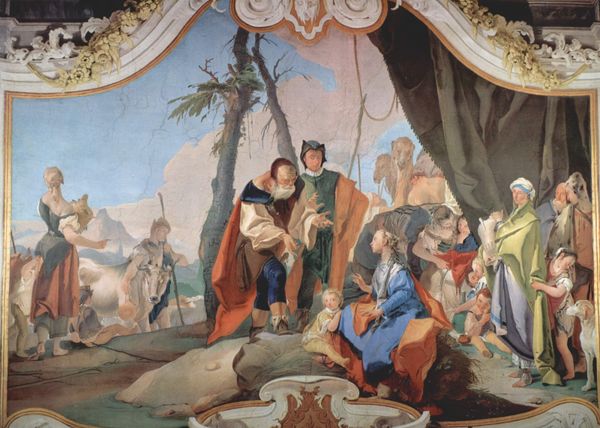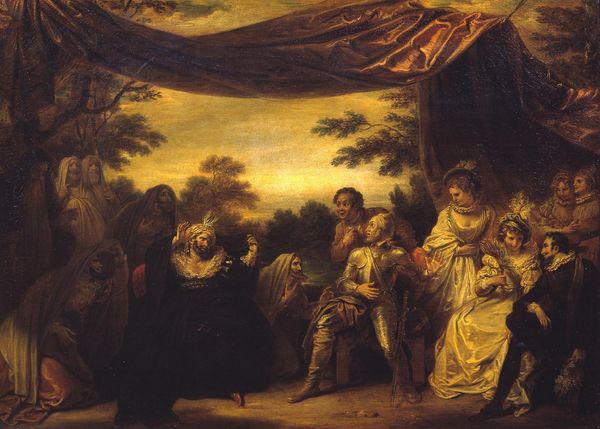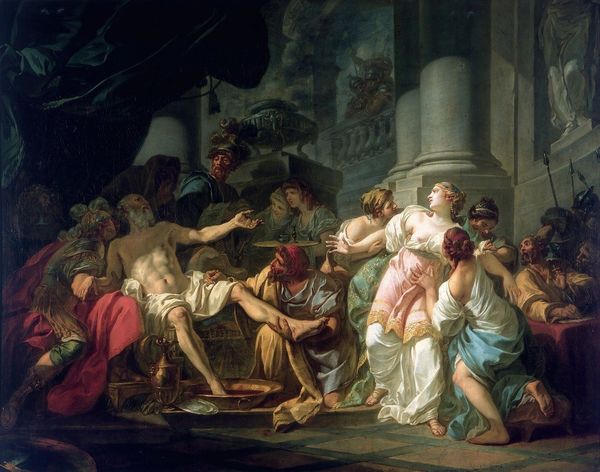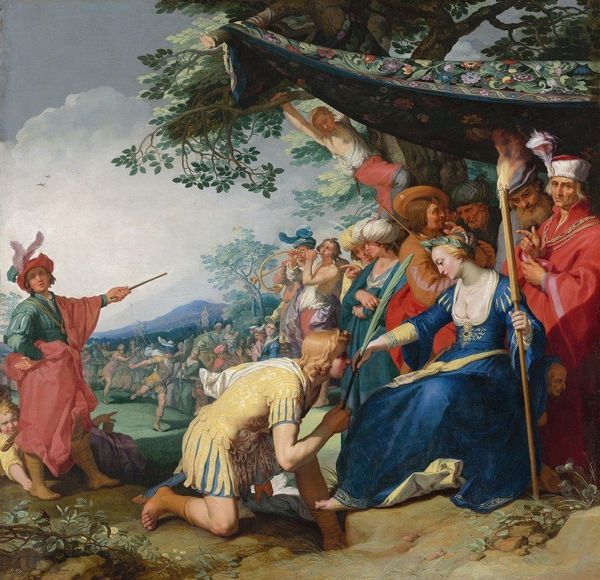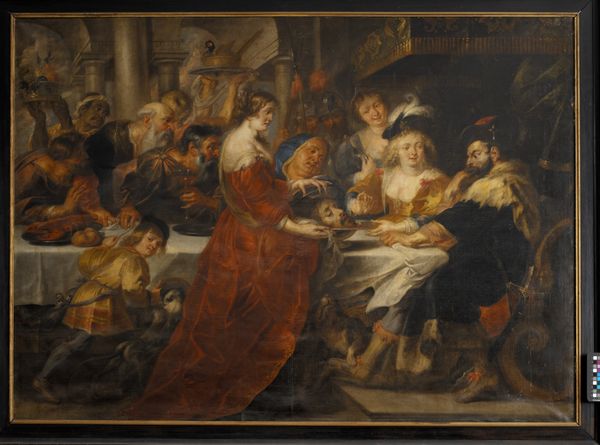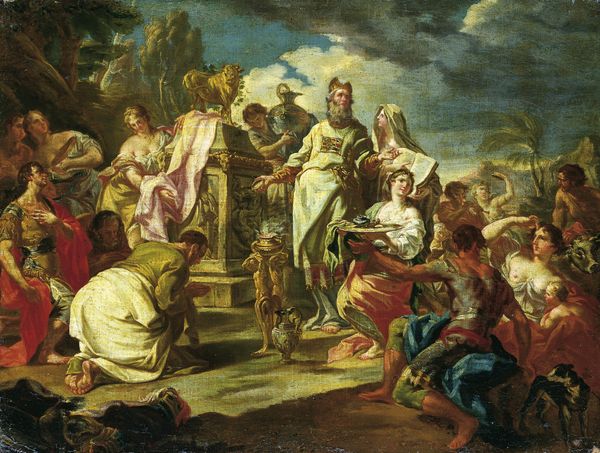
oil-paint
#
portrait
#
baroque
#
oil-paint
#
figuration
#
oil painting
#
mythology
#
history-painting
Copyright: Public domain
Editor: This is Charles Le Brun's painting, "Les Reines de Perse aux Pieds d'Alexandre Dit Aussi la Tente de Darius." It’s oil paint and it depicts a scene of supplication. The scale makes the emotion very raw and palpable; how would you interpret this work, thinking about its social context? Curator: This baroque piece visualizes power dynamics. Le Brun, as court painter to Louis XIV, often used historical narratives to reflect contemporary political ideologies. Consider how the artist portrays Alexander: his control over the defeated Persian queens reinforces the idea of rightful conquest. But what is 'rightful,' and who decides that? Editor: So, it’s not just history; it’s a statement on contemporary French power? Curator: Precisely. It invites a deeper discussion about the justification of imperialism, not only then, but even today. The grief of the queens serves to amplify Alexander’s, and by extension, France’s, magnanimity, masking potential exploitation. How do you think viewers at the time might have seen this? Editor: I suppose they’d see Louis XIV as a new, benevolent Alexander, justifying his expansionist policies. But today, we see the subjugation much clearer, perhaps? Curator: Indeed. We can analyze it through a postcolonial lens, questioning whose stories are told and how. Are the queens merely symbols of defeat or can we also read resistance in their postures? This artwork is more than just a scene; it’s an assertion of dominance wrapped in historical grandeur. Editor: I never thought about how art could be such a direct piece of propaganda back then. It gives a whole new level of meaning. Curator: Exactly! By questioning these constructed narratives, we equip ourselves to better understand power and its manifestations in our own time. Editor: Well, thank you for expanding my point of view, that was really enlightening!
Comments
No comments
Be the first to comment and join the conversation on the ultimate creative platform.
